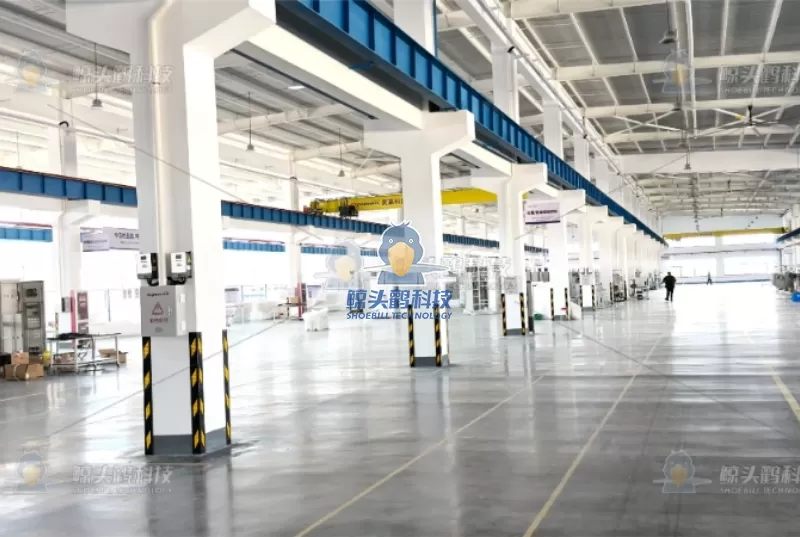With the continuous advancement of technology, the ways to explore the ocean world are becoming more and more diverse. As an emerging underwater sports equipment, underwater scooters allow users to move freely underwater like a skateboard, providing a new underwater adventure experience. However, in order to ensure safety and extend service life, proper maintenance is essential. This article will detail the maintenance guide for underwater scooters to help users maintain their optimal performance.
1. Regular inspection and cleaning
Appearance inspection: After each use, the appearance of the scooter should be carefully inspected for damage, cracks, or abnormal wear. Pay special attention to the body seams and parts such as the joystick.
Cleaning the scooter: Rinse the scooter with clean water to remove salt, sand, and other impurities. Avoid using highly corrosive detergents to avoid damaging the material.
Sealing inspection: Check all seals regularly to ensure that there are no cracks or aging. Replace the seals when necessary to prevent water from penetrating into the motor or battery compartment.
2. Battery maintenance
Charging: Charge according to the instructions of the underwater scooter manufacturer to avoid overcharging or long-term low-power storage.
Battery storage: If not used for a long time, the battery should be charged to about 50%-80% of the power and stored in a dry and cool place. Regularly check the battery for swelling, leakage, or unstable voltage. If there is any problem, replace the battery in time.

3. Motor and propeller maintenance
Motor protection: Avoid the scooter from colliding with hard objects at high speed in the water, which may damage the motor.
Propeller inspection: Make sure the propeller is free of entanglements such as seaweed or ropes, and check whether the screws are loose.
Motor watertightness: Regularly check the watertightness of the motor part to ensure that no water penetrates into the motor.
4. Control system maintenance
Connection check: Check whether all wires are firmly connected and there is no wear or breakage.
Controller protection: If the controller is not completely sealed, it needs to be carefully waterproofed to avoid short circuits caused by water ingress.
System test: Regularly test the control system on land for normal functions, including start, stop, acceleration, and deceleration functions.
5. Buoyancy and balance adjustment
Buoyancy check: Make sure the scooter has good buoyancy. If the buoyancy is found to be insufficient, check whether the buoyancy chamber is leaking or damaged.
Center of gravity balance: Check whether the load is evenly distributed to ensure the stability and easy control of the scooter underwater.
6. Special maintenance operations
Special tools: Use tools that are specific to the scooter for repairs and adjustments to prevent new damage caused by inappropriate tools.
Software updates: If the scooter is equipped with an intelligent system, perform regular software updates according to the manufacturer's instructions to obtain optimal performance and new features.
Professional service: For complex faults or maintenance items, it is recommended to contact the manufacturer or a professional service center for maintenance to avoid greater damage caused by self-operation.
7. Storage precautions
Dry storage: Make sure the scooter is completely dry before storage after use to avoid rust or mildew caused by moisture.
Temperature control: The storage environment should maintain a suitable temperature to avoid potential damage to electronic devices and batteries caused by extremely high or low temperatures.
Safety protection: During storage, use a special protective cover or box to protect the scooter to reduce dust accumulation and accidental damage.
8. Comply with the rules of use
Pre-use inspection: Perform a quick pre-inspection before each launch to confirm that all functions are normal and ensure safe use.
Avoid overloading: Do not exceed the maximum load limit of the scooter. Excessive load will increase mechanical wear and reduce safety. Always pay attention to safety when using underwater scooters. Wear appropriate protective equipment, such as life jackets and diving masks. Follow the instructions and safety rules. Avoid using the scooter in unsuitable conditions.
Underwater scooters are exciting underwater activity equipment, but only through proper maintenance and care can their long-term stable operation be ensured. The implementation of the above maintenance measures can not only extend the service life of underwater scooters but also improve the safety during use. As users, we should develop good maintenance habits, enjoy the exciting underwater riding experience, and take responsible care of this high-end equipment.
As an underwater scooter factory, we are committed to providing high-quality, innovative, and reliable products. Whether you are a lover of underwater adventures or a consumer looking for a high-quality underwater scooter, we will wholeheartedly provide you with quality products and services. Please contact us to learn more about our products and customized services.
Tony Wen
sales@waterhythm.com



More Stories
Premium Pure Wool Suit Fabric for Timeless Elegance
Why Spandex Rabbit Fur Fabric Is a Sustainable Alternative to Real Rabbit Fur
Why Korean Velvet Is The Perfect Material For Gift Boxes